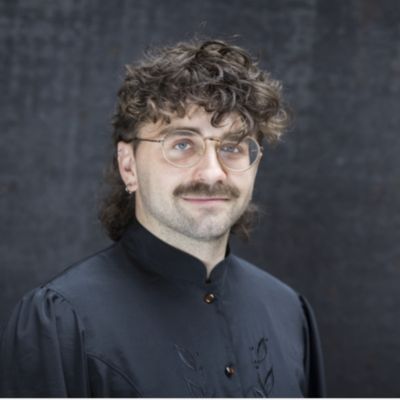
“’So then...he raped me’: Male Experiences of Sexual Violence During the Holocaust”
Professional Background
William R. Jones is a PhD candidate at the University of Oxford. His research engages in Asian and Middle Eastern studies. Prior to beginning his doctoral studies, William received a bachelor’s degree in German and a bachelor of business administration in finance from Southern Methodist University in Dallas, Texas. He also earned a master’s degree in Jewish studies from the University of Oxford. He is a former Fulbright Scholar to Germany, where he taught English.
Mr. Jones has conducted research in England, Germany, Poland, and Israel, including at the Archives of the State Museum Auschwitz-Birkenau and Yad Vashem. He has been invited to speak at various workshops, conferences, and seminars, including the Graduate History Seminar at the University of Oxford and the upcoming “Children as victims of sexual and sexualised violence in the Second World War and its aftermath” conference. Mr. Jones has an article appearing in The Journal of Holocaust Research – Special issue: Sexuality and the Holocaust, forthcoming 2023, and he is currently translating Anna Hajkova’s “Menschen ohne Geschichte sind Staub: Homophobie und Holocaust” for publication in English. He is fluent in English and German and has language skills in Yiddish, Hebrew, and French.
Fellowship Research
William Jones was awarded the Alexander Grass Memorial Fellowship for his dissertation project provisionally titled “’So then...he raped me’: Male Experiences of Sexual Violence During the Holocaust.” His research is the largest and most comprehensive investigation of males’ experiences of sexual violence during the Holocaust, answering questions such as: What forms of sexual violence were present and how widespread were they? Who were the perpetrators and who were the victims? What structures enabled these abuses? Mr. Jones explores a variety of forms of such violence, from rape and sexual slavery in the camps and in hiding, to castration and medical experimentation, to redefining understandings of witness as victim. He is interested in the exploitative nature of power and how different aspects of one’s identity made one more or less vulnerable to sexual violence. Jones pays particular attention to the complexity of agency and consent in these experiences, which can be confusing for both victim and researcher.
This fellowship affords Mr. Jones both the time and access needed to immerse himself fully in the testimony required for his project, including access to the Museum’s oral history archive, the USC Visual History Archive, and the Fortunoff Archive for Holocaust Testimony, to investigate nearly 300 testimonies by both victims and witnesses that include descriptions of sexual violence against males. Additionally, he will consult the various unpublished papers, memoirs, and diaries held by the Museum, under-utilized Yiddish sources being of particular interest. Through the investigation of these sources, Jones’s research highlights experiences that have long been ignored in Holocaust studies with the goal of approaching a more integrated history of sexual violence and gender during the Holocaust, as well as in genocide studies more generally.
